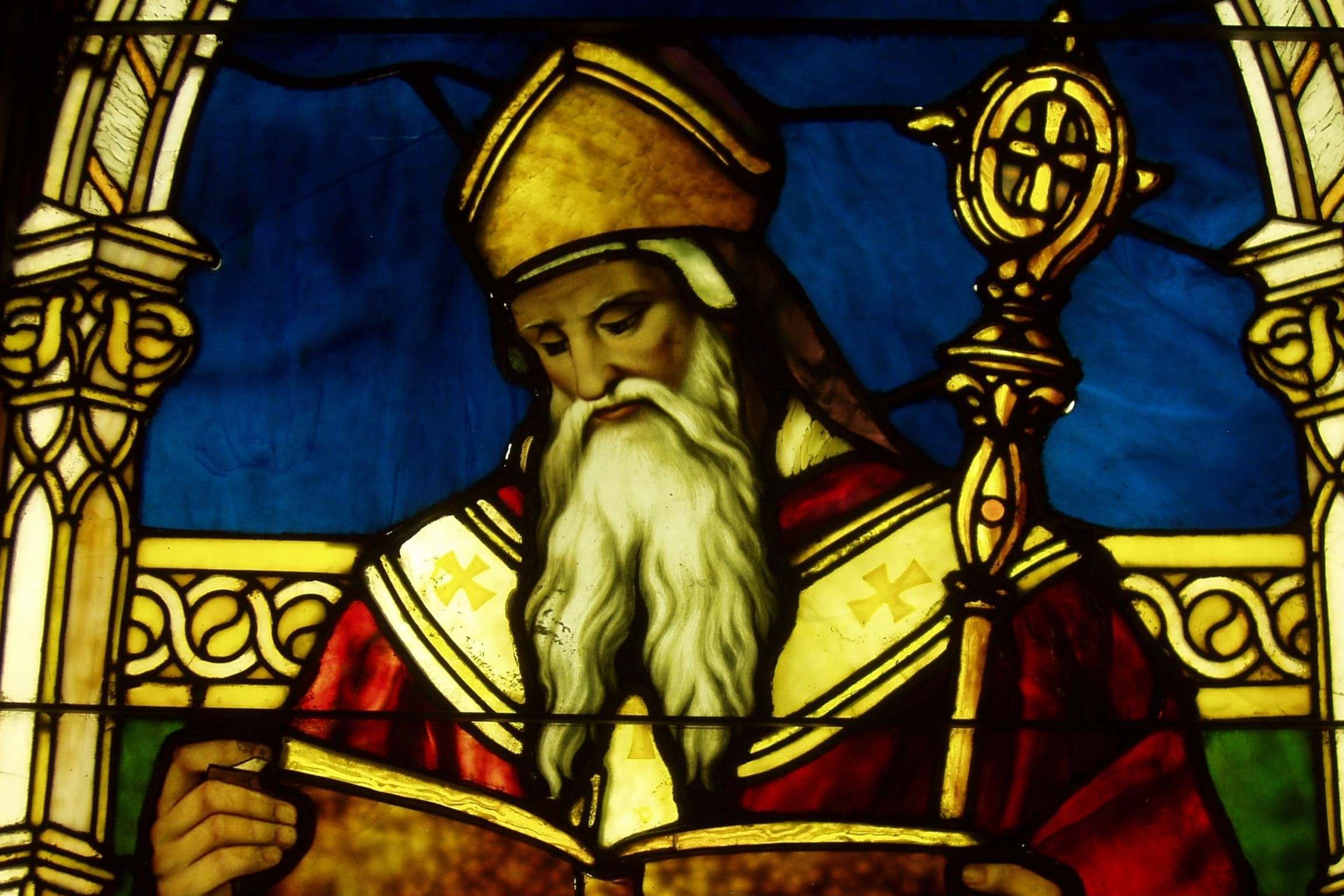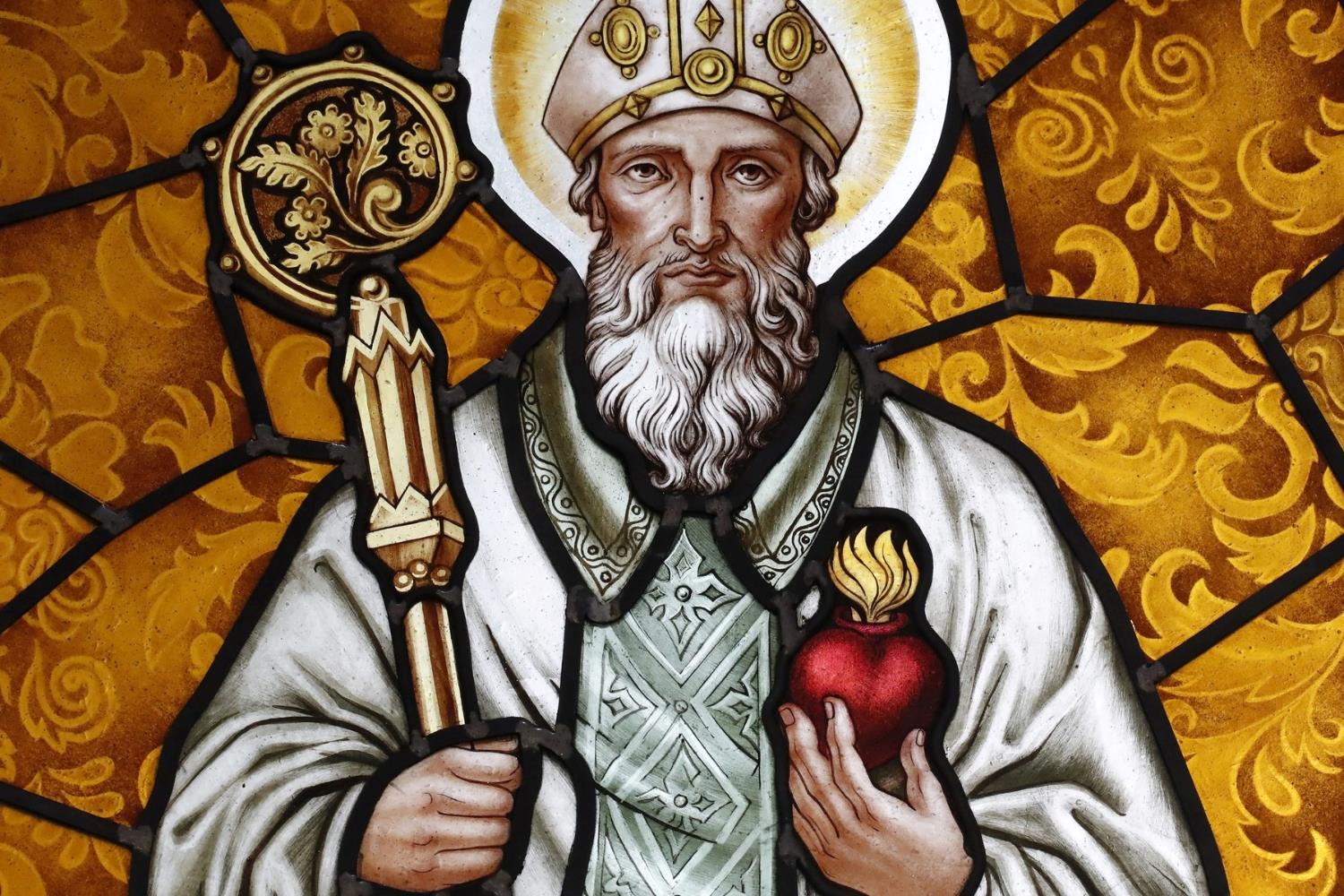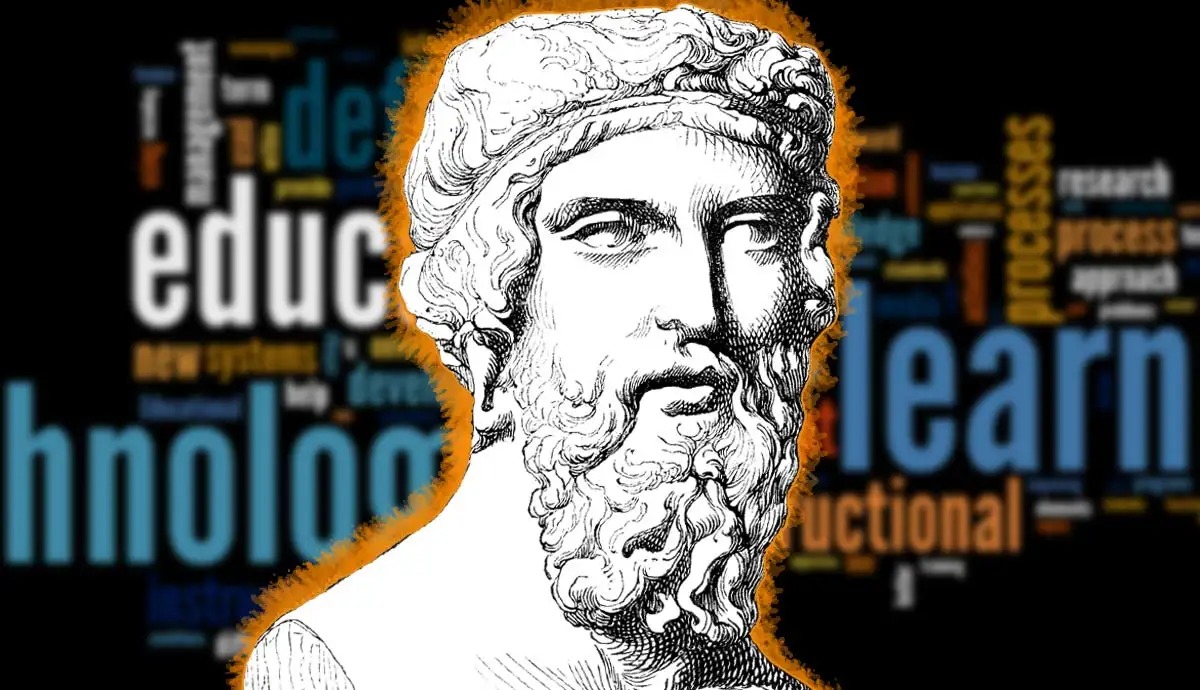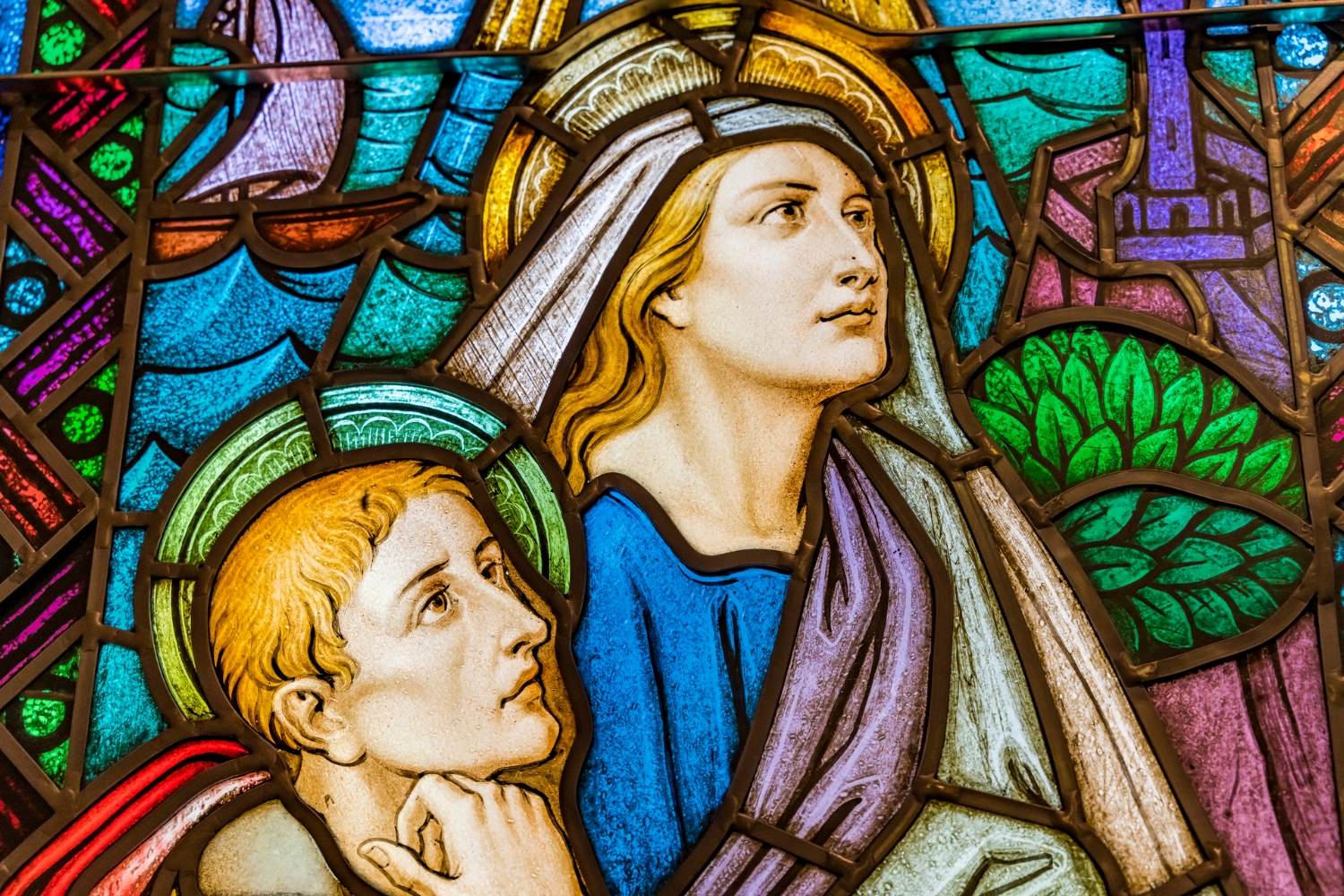Home>Theology and Spirituality>How Augustine Was Influenced By Neoplatonism
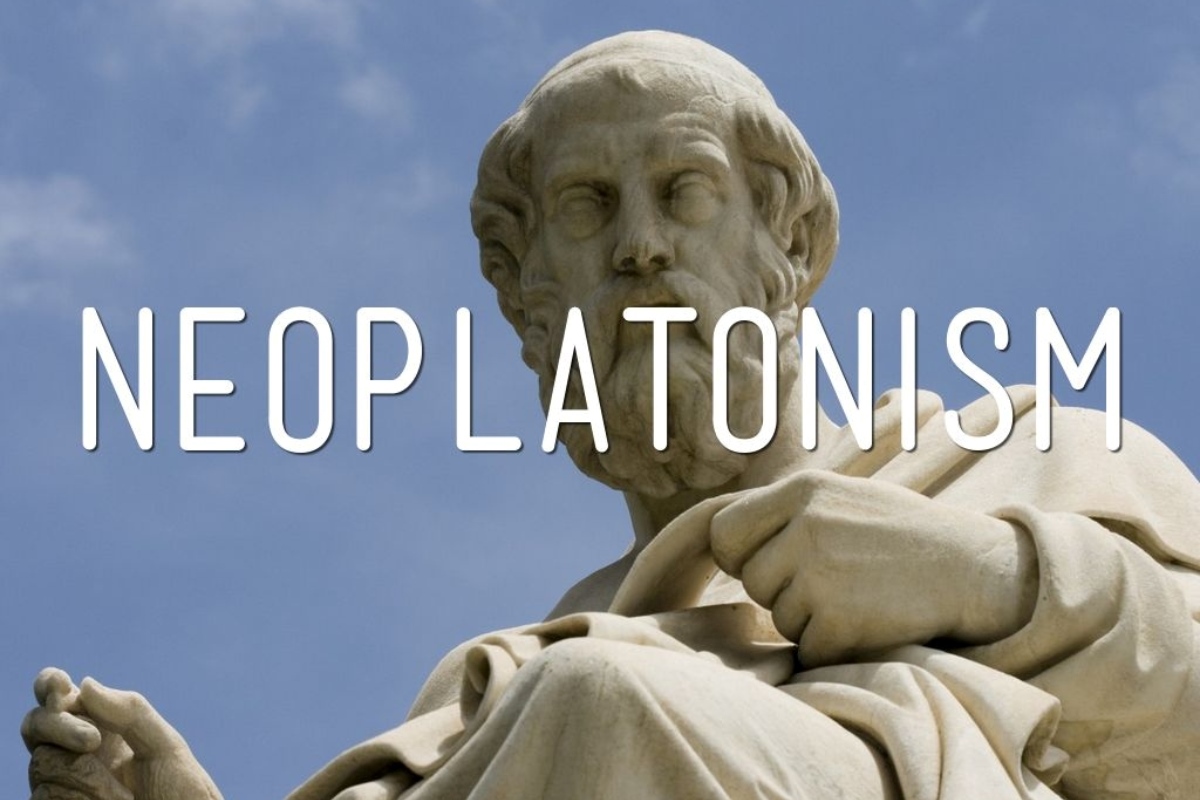

Theology and Spirituality
How Augustine Was Influenced By Neoplatonism
Published: February 10, 2024
Peter Smith, Editorial Director at Christian.net, combines deep insights into faith, politics, and culture to lead content creation that resonates widely. Awarded for his contributions to religious discourse, he previously headed a major organization for religious communicators, enhancing dialogue on faith's societal impacts.
Discover how Augustine's theological views were shaped by Neoplatonism, and the impact of this influence on his spirituality. Explore the intersection of theology and spirituality in Augustine's thought.
(Many of the links in this article redirect to a specific reviewed product. Your purchase of these products through affiliate links helps to generate commission for Christian.net, at no extra cost. Learn more)
Table of Contents
Introduction
The profound impact of Neoplatonism on the thought and theology of Saint Augustine, also known as Augustine of Hippo, is a subject of great significance in the history of Christian philosophy. Augustine, a towering figure in the development of Western Christian thought, was deeply influenced by the ideas of Neoplatonism, a philosophical system founded by the renowned philosopher Plotinus.
In this article, we will delve into the life and works of Augustine, exploring the pivotal role that Neoplatonism played in shaping his theological perspectives. By examining the core tenets of Neoplatonism and their resonance in Augustine's writings, we will gain a deeper understanding of the interplay between these two intellectual traditions. Furthermore, we will explore the concept of God in Neoplatonism and Augustine's theology, shedding light on the profound theological implications of their respective views.
As we embark on this exploration, it is essential to recognize the enduring relevance of Augustine's engagement with Neoplatonism. By unraveling the intricate connections between these philosophical and theological frameworks, we can appreciate the rich tapestry of ideas that informed Augustine's intellectual journey. This inquiry will not only illuminate the historical context of Augustine's thought but also offer valuable insights into the enduring dialogue between philosophy and theology.
Join us on this enlightening journey as we uncover the profound influence of Neoplatonism on Augustine's theological vision, unraveling the intricate threads that connect these two intellectual traditions. Through this exploration, we will gain a deeper appreciation for the enduring legacy of Augustine's engagement with Neoplatonism, recognizing the profound implications of this philosophical encounter for the development of Christian theology.
Read more: The Influence Of Religion On Education
The Life and Works of Augustine
Augustine of Hippo, born Aurelius Augustinus in 354 AD in Thagaste, Numidia (modern-day Algeria), embarked on a remarkable intellectual and spiritual journey that would profoundly shape the course of Western Christian thought. His early life was marked by a quest for knowledge and meaning, leading him to pursue education in rhetoric and philosophy. Augustine's intellectual pursuits eventually led him to encounter the teachings of Manichaeism, a dualistic religious movement that left a lasting impression on his spiritual development.
Amidst his philosophical inquiries, Augustine's restless soul sought deeper truths, ultimately leading him to embrace Neoplatonism, a philosophical system that would exert a profound influence on his theological outlook. His immersion in Neoplatonic thought, particularly through the works of Plotinus, engendered a transformative shift in his philosophical orientation, laying the groundwork for his later theological endeavors.
Augustine's literary corpus encompasses a diverse array of works, ranging from his seminal theological treatises to his autobiographical reflections. Notable among his writings is "Confessions," a profoundly introspective work that chronicles his spiritual journey and philosophical inquiries. In this introspective masterpiece, Augustine candidly reflects on his intellectual odyssey, grappling with profound existential questions and the yearning for spiritual fulfillment.
Furthermore, Augustine's magnum opus, "The City of God," stands as a monumental testament to his theological acumen and intellectual prowess. This monumental work, composed in response to the sack of Rome by the Visigoths, explores the nature of earthly and heavenly cities, delving into profound theological and philosophical inquiries with unparalleled depth and erudition.
Throughout his life, Augustine's intellectual pursuits were intertwined with his pastoral responsibilities as a bishop, underscoring the seamless integration of his theological reflections with his pastoral vocation. His sermons and letters offer invaluable insights into his pastoral care and theological exegesis, showcasing the multifaceted dimensions of his intellectual and spiritual legacy.
As we contemplate the life and works of Augustine, we are confronted with the enduring resonance of his intellectual and spiritual odyssey. His profound engagement with Neoplatonism, coupled with his theological insights and pastoral endeavors, exemplifies the rich tapestry of his intellectual legacy. Augustine's enduring influence on Christian theology and Western thought attests to the enduring relevance of his life and works, inviting us to embark on a profound journey of intellectual and spiritual discovery in the footsteps of this remarkable luminary.
Neoplatonism and Its Influence on Augustine
Neoplatonism, a philosophical system founded by the eminent thinker Plotinus, exerted a profound and enduring influence on the theological and philosophical development of Saint Augustine. At the heart of Neoplatonism lies a robust metaphysical framework that posits the existence of a transcendent, ineffable One from which emanate the successive levels of reality. This hierarchical cosmology, characterized by the emanation of the One, the Intellect (Nous), and the Soul, resonated deeply with Augustine's intellectual sensibilities, shaping his theological reflections in profound ways.
Central to Neoplatonism is the concept of the soul's ascent to the divine through contemplation and purification. Plotinus' emphasis on the soul's journey towards union with the One through intellectual and spiritual purification found a receptive audience in Augustine, who grappled with questions of human nature, the nature of evil, and the yearning for transcendence. Augustine's own spiritual odyssey, marked by his fervent pursuit of truth and spiritual fulfillment, intersected with the Neoplatonic emphasis on the soul's ascent, providing fertile ground for the convergence of their respective perspectives.
Moreover, Neoplatonism's emphasis on the primacy of the One as the source of all existence resonated with Augustine's theological reflections on the nature of God as the ultimate source of all being. The Neoplatonic concept of the One as the ineffable source of unity and transcendence found echoes in Augustine's articulation of God as the supreme source of unity, goodness, and transcendence, underscoring the profound resonance between their respective metaphysical frameworks.
Furthermore, the Neoplatonic notion of the Intellect (Nous) as the intermediary between the One and the material world informed Augustine's reflections on the role of divine illumination in human cognition and understanding. Augustine's emphasis on the illuminative role of divine grace in illuminating the human mind and guiding it towards truth reflects the Neoplatonic conception of the Intellect as the intermediary realm that facilitates the soul's ascent towards the divine.
In essence, Neoplatonism's profound influence on Augustine's thought is evident in the convergence of their metaphysical frameworks, the resonance of their perspectives on the soul's ascent, and the profound theological implications of their respective views of the divine. Augustine's engagement with Neoplatonism not only enriched his theological vision but also contributed to the enduring legacy of Neoplatonic thought in the development of Christian theology, exemplifying the enduring dialogue between philosophy and theology in the intellectual landscape of the ancient world.
The Concept of God in Neoplatonism and Augustine's Theology
The concept of God occupies a central position in both Neoplatonism and Augustine's theology, serving as a focal point for their respective philosophical and theological reflections. In Neoplatonism, the notion of the One, or the Good, represents the ultimate source of all existence and the ineffable principle from which all reality emanates. This transcendent and ineffable One transcends all attributes and conceptual limitations, serving as the ultimate ontological foundation of the Neoplatonic metaphysical framework.
Similarly, Augustine's theology articulates a robust conception of God as the supreme source of all being, goodness, and transcendence. Drawing from the Christian tradition and engaging with Neoplatonic ideas, Augustine expounds upon the nature of God as the ultimate source of unity and perfection, whose divine attributes encompass omnipotence, omniscience, and omnipresence. Augustine's theological vision emphasizes the divine attributes of love, mercy, and justice, underscoring the profound moral and existential implications of his conception of God.
The Neoplatonic concept of the One as the transcendent source of unity and goodness finds resonance in Augustine's articulation of God as the supreme source of all goodness and perfection. Augustine's theological synthesis integrates Neoplatonic metaphysical insights with Christian theological doctrines, culminating in a profound conception of God as the ultimate ground of all reality and the ineffable source of divine perfection.
Furthermore, Neoplatonism's emphasis on the soul's ascent towards the divine through contemplation and purification intersects with Augustine's theological anthropology, which elucidates the human soul's yearning for union with God. Augustine's exploration of the human condition and the yearning for transcendence reflects the Neoplatonic emphasis on the soul's journey towards the ineffable One, highlighting the convergence of their perspectives on the human quest for spiritual fulfillment.
In essence, the concept of God in Neoplatonism and Augustine's theology embodies a profound convergence of metaphysical, ethical, and existential dimensions, underscoring the enduring resonance of their respective perspectives on the divine. Their theological reflections on the nature of God illuminate the rich tapestry of ideas that informed the intellectual landscape of the ancient world, inviting us to contemplate the enduring legacy of their profound engagement with the concept of the divine.
The Role of Reason and Faith in Neoplatonism and Augustine's Thought
The interplay between reason and faith occupies a central position in the intellectual and theological frameworks of both Neoplatonism and Augustine's thought, reflecting their nuanced perspectives on the relationship between philosophical inquiry and religious conviction. In Neoplatonism, the ascent to the divine is characterized by the soul's contemplative journey, guided by the faculty of intellect and the pursuit of transcendent truths. Plotinus, the eminent proponent of Neoplatonism, emphasized the pivotal role of reason in facilitating the soul's ascent to the ineffable One, underscoring the transformative power of philosophical contemplation in illuminating the path to spiritual enlightenment.
Similarly, Augustine's engagement with the interplay of reason and faith reflects a profound synthesis of philosophical inquiry and theological conviction. Augustine's intellectual journey, marked by his immersion in Neoplatonic thought and his eventual conversion to Christianity, exemplifies the intricate interplay between reason and faith in shaping his theological perspectives. His philosophical inquiries, particularly in his early embrace of Manichaeism and subsequent engagement with Neoplatonism, underscore the formative influence of reason on his spiritual odyssey.
Moreover, Augustine's theological reflections on the nature of faith and reason exemplify a nuanced integration of philosophical inquiry and religious conviction. His seminal work, "On the Free Choice of the Will," grapples with the complex interplay between human agency, divine grace, and the rational foundations of moral decision-making, offering profound insights into the harmonious coalescence of reason and faith in the pursuit of moral and spiritual truth.
In essence, the role of reason and faith in Neoplatonism and Augustine's thought embodies a dynamic interplay of philosophical contemplation and theological insight, underscoring the enduring dialogue between intellectual inquiry and religious conviction. Their respective engagements with the intricate relationship between reason and faith invite us to contemplate the profound synthesis of philosophical wisdom and spiritual discernment, illuminating the rich tapestry of ideas that informed the intellectual and theological landscape of the ancient world.
Conclusion
In conclusion, the profound influence of Neoplatonism on the thought and theology of Saint Augustine is a testament to the enduring dialogue between philosophy and theology in the ancient world. Augustine's intellectual and spiritual odyssey, marked by his immersion in Neoplatonic thought and his subsequent theological synthesis, exemplifies the rich tapestry of ideas that informed the development of Western Christian thought. The interplay between Neoplatonism and Augustine's theological vision underscores the enduring resonance of their respective perspectives on the nature of the divine, the role of reason and faith, and the profound implications of the soul's ascent towards transcendence.
The enduring legacy of Augustine's engagement with Neoplatonism invites us to contemplate the profound intersections between philosophical wisdom and theological insight, illuminating the rich tapestry of ideas that shaped the intellectual landscape of the ancient world. By unraveling the intricate connections between Neoplatonism and Augustine's thought, we gain a deeper appreciation for the enduring relevance of their philosophical encounter, recognizing the enduring dialogue between reason and faith, metaphysical contemplation, and theological reflection.
Furthermore, the concept of God in Neoplatonism and Augustine's theology embodies a profound convergence of metaphysical, ethical, and existential dimensions, underscoring the enduring resonance of their respective perspectives on the divine. Their theological reflections on the nature of God invite us to contemplate the enduring legacy of their profound engagement with the concept of the divine, offering valuable insights into the enduring dialogue between philosophy and theology.
In essence, the profound influence of Neoplatonism on Augustine's theological vision exemplifies the enduring relevance of their intellectual encounter, inviting us to embark on a profound journey of intellectual and spiritual discovery in the footsteps of these remarkable luminaries. Through this exploration, we gain a deeper understanding of the enduring legacy of Augustine's engagement with Neoplatonism, recognizing the profound implications of this philosophical encounter for the development of Christian theology.








